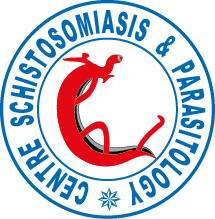2010 National Deworming Campaign
 On Wednesday, 5th May 2010 the National Deworming Campaign was launched in Yaounde by his excellency, the Minister of Public health, Andre Mama Fouda and her excellency,the Minister of Basic Education, Youssouf Hadidja Alim, at Government Primary School Nkolbisson. The launched was attended by stakeholders and partners such as: the Secretary of State of Public Health; WHO Representative to Cameroon; and the Permanent Secretary for the National Programme for the Control of Schistosomiasis and STH, Helen Keller International, Sight Savers, Perspectives and International Eye Foundation.
On Wednesday, 5th May 2010 the National Deworming Campaign was launched in Yaounde by his excellency, the Minister of Public health, Andre Mama Fouda and her excellency,the Minister of Basic Education, Youssouf Hadidja Alim, at Government Primary School Nkolbisson. The launched was attended by stakeholders and partners such as: the Secretary of State of Public Health; WHO Representative to Cameroon; and the Permanent Secretary for the National Programme for the Control of Schistosomiasis and STH, Helen Keller International, Sight Savers, Perspectives and International Eye Foundation.
The drugs used in deworming all the children were generously donated by our pharmaceutical partners, Johnson &Johnson and Merck. Mebendazole (MBD) 500mg was donated by Johnson & Johnson while praziquantel (PZQ) 600mg was given by WHO/Merck. All activities carried out during the campaign were facilitated by the partnership between the Ministry of Public Health, Ministry of Basic Education and the Union of United Councils and Cities of Cameroon (UCCC).
[spacer height=”20px”]
Accomplishments
- A total of 5,941,235 million were dewormed and most of them were targeted in schools (3,237,306million) , and the remaining 2,703,929 million children were reached in the communities during the Mother and Child Health and Nutrition Action Week.
- There was an increased awareness about schistosomiasis and STH in the community, in relation to prevention and treatment.
[spacer height=”20px”]
Challenges
Albeit the achievements there were still some challenges that hindered the success of the campaign.
Due to the late availability of funds the campaign was launched in May rather than in the January-February as previously envisioned and this caused disruptions as May is a period whereby schools prepare for exams. Limited time was allocated for micro-planning at district level which accounted for the limited time used for training sessions, and supervision of activities at both regional and district levels. In addition, there were delays in obtaining reports from school due to disruptions caused by the school holidays immediately after exams.
[spacer height=”20px”]
Recommendations
- Limitations from the campaign mainly revolved around the availability of funds. Funds should be made available to all health districts on time so as to ensure the smooth running of all training sessions, health education and community awareness in time of the deworming period.
- The free deworming of school-aged children should ideally be carried out in January- February, for this allows ample time for all activities and reports to be completed in a timely manner.
More funds should be allocated for supervision of the activities.
